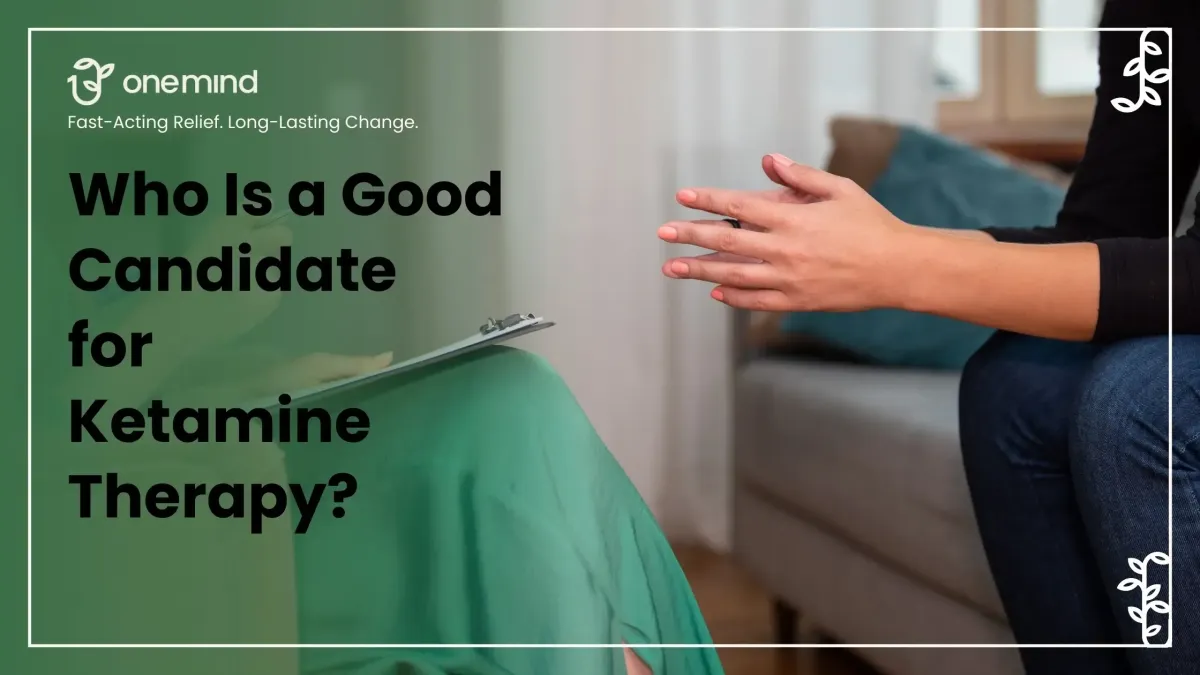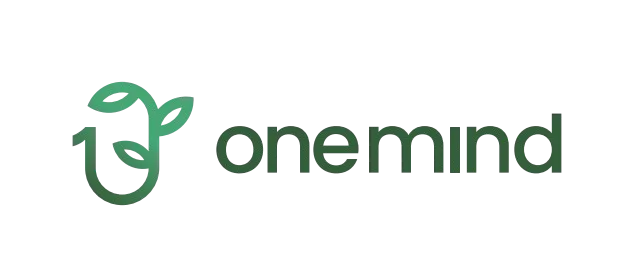Your Space
Transparent Healing.
When therapy, meds, and mindfulness aren’t enough, we help you break through—fast, safe, proven.
Blog

Who Is a Good Candidate for Ketamine Therapy? 10 Signs It Might Be Right for You
Mental health struggles are growing more common; many people silently face depression, anxiety, and PTSD every day. While therapy and medication help some, others feel stuck with no improvement.
That’s where a new option is gaining attention: ketamine therapy. If you’ve been wondering who is a good candidate for ketamine therapy, you’re not alone. This guide breaks it down clearly, so you can decide whether it's a path worth considering.
What Is Ketamine Therapy?
Ketamine therapy is a medical treatment that uses low doses of ketamine, often delivered by infusion, to help people manage serious mental health conditions. Originally used as an anesthetic, ketamine is now being used for mental health, especially in cases where standard medications haven’t worked. There are two main forms:
Ketamine (used off-label in clinics)
Esketamine (FDA-approved as a nasal spray called Spravato)
While both help, ketamine is more commonly used in IV ketamine treatments or ketamine infusion therapy. In these settings, patients receive the medication through an intravenous line while being monitored by trained professionals.
Clinics like One Mind Wellness & Ketamine specialize in this approach, ensuring safe, guided care during each session.
10 Signs You May Be a Good Candidate for Ketamine Therapy

If you’ve tried multiple medications or talk therapy without noticeable relief, you might be part of a growing group of people labeled as candidates for ketamine therapy. Here are the most common markers that may indicate someone is a good candidate for ketamine therapy, based on current clinical research and protocols followed by safe providers like One Mind Wellness & Ketamine.
1. Treatment-Resistant Depression
Patients suffering from health conditions such as depression that don’t respond to traditional treatments like SSRIs or SNRIs often qualify. Ketamine has proven effective for treatment-resistant depression, especially where emotional numbness and low motivation persist. This condition is one of the most common reasons people explore ketamine therapy as a last resort.
2. Severe Anxiety and Panic Disorders
Persistent anxiety that interferes with your daily life, even when taking medication or attending therapy, could make you a candidate for this treatment. Ketamine has shown benefits for mood disorders and chronic mental health conditions where panic or extreme worry dominate.
3. Post-Traumatic Stress Disorder (PTSD)
People living with PTSD who haven’t responded to EMDR or medications may be excellent ketamine candidates. PTSD involves long-term neurological changes, and ketamine treatment has shown the ability to reduce flashbacks, hypervigilance, and emotional reactivity in some cases.
4. Obsessive-Compulsive Disorder (OCD)
Though more research is still emerging, patients with stubborn OCD symptoms are increasingly being evaluated as candidates for ketamine. For those with obsessive thoughts or repetitive behaviors that don’t respond to therapy or medication, IV ketamine treatment may be considered under controlled conditions.
5. Suicidal Thoughts (FDA-Approved Usage)
People dealing with suicidal ideation, especially when urgent, may be eligible. Ketamine is one of the few psychiatric treatments that can reduce suicidal thoughts within hours, as supported by FDA approval for esketamine nasal spray. Many clinics now include this in their protocol for IV ketamine therapy when appropriate.
6. A Safe Medical Profile for Infusion
You must have a stable physical condition to undergo ketamine infusion therapy. Because ketamine can temporarily elevate blood pressure and heart rate, individuals with uncontrolled high blood pressure, heart problems, or ongoing pregnancy and breastfeeding are typically excluded.
7. No History of Psychotic Disorders
If you’ve ever experienced psychosis, schizophrenia, or dissociative identity disorder, you’re likely not a good candidate for ketamine treatment. Ketamine can exacerbate these symptoms and increase the risk of adverse psychological reactions. That’s why most psychiatry experts include this as an exclusion factor.
8. You’re Willing to Be Professionally Evaluated
Anyone considering ketamine must be open to a comprehensive treatment plan, which includes screening by medical and mental health professionals. Qualified clinics assess your medical history, current symptoms, treatment history, and current health status.
9. You’ve Responded Poorly to Standard Approaches
One of the key patterns in identifying a good candidate for ketamine therapy is a poor response to at least two traditional antidepressants or talk therapy modalities. This condition, often defined as treatment-resistant depression, is part of the inclusion criteria at most certified ketamine clinics.
10. You’re Mentally and Emotionally Stable Enough to Participate
Lastly, you must be grounded enough to tolerate mild side effects that are temporary, like dissociation, dizziness, or nausea. You should also be able to communicate with the care team during and after treatment, follow the schedule, and commit to a course of treatment as outlined in your treatment plan.
Who Should Not Try Ketamine Therapy?

While ketamine offers hope, it’s not for everyone. There are specific red flags that could disqualify someone as a candidate for this treatment. Avoid ketamine use if you have:
A history of psychosis or schizophrenia
Uncontrolled high blood pressure
Current pregnancy or breastfeeding
Ongoing substance abuse
Certain medications that interfere with ketamine (e.g., benzodiazepines, MAOIs)
Remember, not everyone is a good candidate, and that’s okay. One Mind Wellness & Ketamine carefully screens every patient to avoid potential risks.
How to Determine If Ketamine Therapy Is Right for You
You shouldn’t self-diagnose. A trained professional must assess your full history to determine if ketamine therapy is right for you. Here’s what professionals evaluate:
Your medical history
Any current medications
Blood pressure and heart rate
Past mental health condition diagnoses
Prior treatment results and side effects
Facilities like One Mind Wellness & Ketamine work closely with each patient, combining psychological screening with physical evaluations before building a comprehensive treatment plan.
How to Get Safe Ketamine Treatment

With the growing interest in ketamine therapy, safety should always come first. While it may seem tempting to explore quick fixes, not all providers follow proper standards. To protect your health, it’s critical to choose the right treatment under medical supervision.
Some people take unnecessary risks by turning to unsafe or unregulated options. If you're considering ketamine, be aware of the red flags.
Are There Any Side Effects or Risks?
No treatment is perfect, and even promising options like ketamine therapy come with some risks. Fortunately, most side effects are mild, short-lived, and fully manageable, especially when care is delivered at a reputable ketamine clinic under proper medical supervision.
Potential Side Effects of Ketamine Therapy:
Dizziness
A common and usually brief sensation, especially right after a ketamine infusion. This is why patients are asked to rest following sessions.
Nausea
Some patients report an upset stomach during or after their IV therapy. Clinics may offer anti-nausea medications to ease this symptom.
Dissociation
This refers to feeling disconnected from your body or surroundings. It may feel “floaty” or dreamlike, but it typically fades within 30–60 minutes.
Temporary Increase in Blood Pressure
Ketamine can increase blood pressure, so vitals like heart rate and blood pressure are closely monitored before, during, and after your session.
How Long Does Ketamine Treatment Take to Work?

Some people feel relief in a few hours. Others need several infusions. Most treatment plans involve 4–6 sessions over 2–3 weeks. After that, you may move to a maintenance phase, with booster infusions as needed. Your response depends on:
Your treatment history
Your mental health condition
How long you’ve had symptoms
Your current health conditions
No one reacts the same. A solid treatment plan is based on ongoing feedback and medical monitoring.
FAQs
What makes someone a good candidate for ketamine therapy?
A good candidate for ketamine therapy is often someone who struggles with treatment-resistant depression, severe anxiety disorders, PTSD, or suicidal thoughts and hasn’t responded to traditional treatments like SSRIs or talk therapy.
They must also be medically cleared for IV therapy, meaning no uncontrolled medical conditions like high blood pressure or a history of psychotic disorders. At One Mind Wellness & Ketamine, evaluations help determine if a patient is an ideal candidate based on their mental health condition, medical history, and overall health profile.
Can I take ketamine therapy if I’ve tried other antidepressants?
Yes, in fact, most candidates for ketamine therapy have already gone through several antidepressant trials without relief. If you’ve tried multiple medications or types of therapy and still struggle with mental health issues, you might be a good candidate for ketamine treatment.
Clinics like One Mind Wellness & Ketamine see many patients who are considering ketamine after exhausting traditional treatments with little success.
Is ketamine safe for people with high blood pressure?
Ketamine therapy can raise blood pressure and heart rate, which means it’s generally only safe for those whose hypertension is well-managed. People with uncontrolled high blood pressure are usually not eligible for ketamine infusions.
A thorough medical screening at a reputable ketamine clinic will evaluate your current health status to determine if ketamine therapy is right for you. Monitoring during each infusion ensures safety.
How many sessions of ketamine therapy are usually needed?
Most patients begin with an initial series of 4–6 ketamine infusions spread over two to three weeks. This helps stabilize mental health symptoms and improve overall functioning. After the first phase, ketamine therapy may shift to a maintenance plan, depending on the individual's needs and treatment history.
Every treatment plan at One Mind Wellness & Ketamine is customized based on how you respond to the infusion process and your health conditions.
Is ketamine therapy covered by insurance?
Insurance coverage for ketamine therapy is limited. The nasal spray version, Spravato (esketamine), is FDA-approved and may be covered under certain plans. However, most IV ketamine treatment and ketamine infusion therapy are considered out-of-pocket services.
It’s best to check with your insurer and talk to your ketamine clinic, like One Mind Wellness & Ketamine, which can walk you through payment options and what’s included in your care.
Final Thoughts
Some people feel hopeless after years of failed medications and therapy. If that sounds familiar, ketamine therapy might offer a different path. That said, only a professional evaluation can determine who is a good candidate for ketamine therapy.
Your medical background, symptoms, and current health all matter. If you're considering ketamine, reach out to a reputable provider like One Mind Wellness & Ketamine to see if this could be the turning point you've been hoping for.
COMPANY
CUSTOMER CARE
LEGAL
Copyright 2025, One Mind | All Rights Reserved.
Powered by WebPanda

